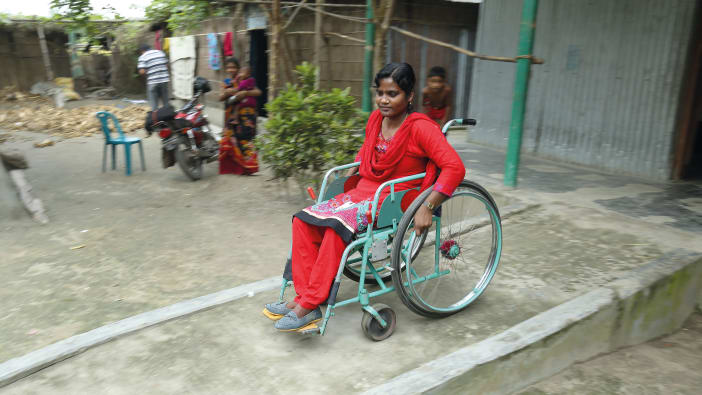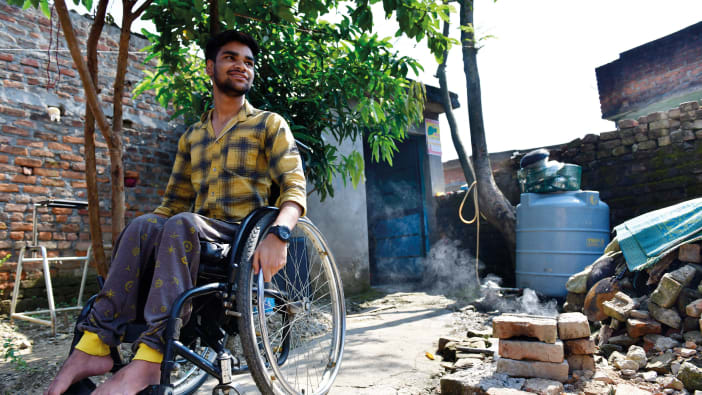by Katharina Haller.
One of the most important things to consider when supporting people with disabilities, is the need to encourage their family and community to help them find their rightful place in society. Medical help is not enough. The attitudes of family members, friends and the wider community are the engine that drives the whole process. This is an educational process in which the whole society should participate.
In the city of Medellín, Colombia, the Comité Regional de Rehabilitación de Antioquia (Regional Committee of Rehabilitation) or ‘El Comité’ is encouraging a method of community participation. They aim to build independent networks to improve the quality of life for people with disabilities.
The committee was established 28 years ago. Last year nearly 20,000 people benefited from their support and training.
El Comité has worked together with the Department of Health to encourage the wider availability of medical expertise, especially in poorer areas. They have encouraged better co-operation between government and private organisations and continue to generate awareness about the need to respect, support and promote people with disabilities, emphasising their achievements and possibilities.
In 25 areas so far, groups of natural leaders have received instruction and training about the way to identify risks, manage disabilities and above all to look for any required help, relying both on the resources of each community and their shared experience. Here is an example of the work of one such group.
Change agents in San Rafael
A census was carried out in San Rafael by the Happy Child Corporation in the 1980s which identified 110 people with disabilities. These people were evaluated by El Comité and the need to create a teaching support programme was noted.
Last year, El Comité developed a process of training change agents which linked together 25 people from this community. Some of the leaders of this new group then reproduced this training process with 30 interested youngsters and adults.
Both groups began working to raise the awareness of their communities. They also shared training in preventing disabilities and in rehabilitating people with disabilities. They targeted hospitals, schools and health centres as well as recreational, business and cultural activities. So far nearly 500 people have benefited from their awareness raising programmes. They have trained nearly 300 people in prevention and rehabilitation skills and guided 60 people in the management of their disability.
They are continuing their activities, encouraging networking and contacting other groups of change agents. They hope this networking will help strengthen their own local actions.
Katharina Haller has been a journalist for 30 years. She has worked with El Comité on several occasions as she says ‘It is an organisation that you end up in love with!’ El Comité, AA 50867, Medellín, Colombia E-mail: [email protected]








